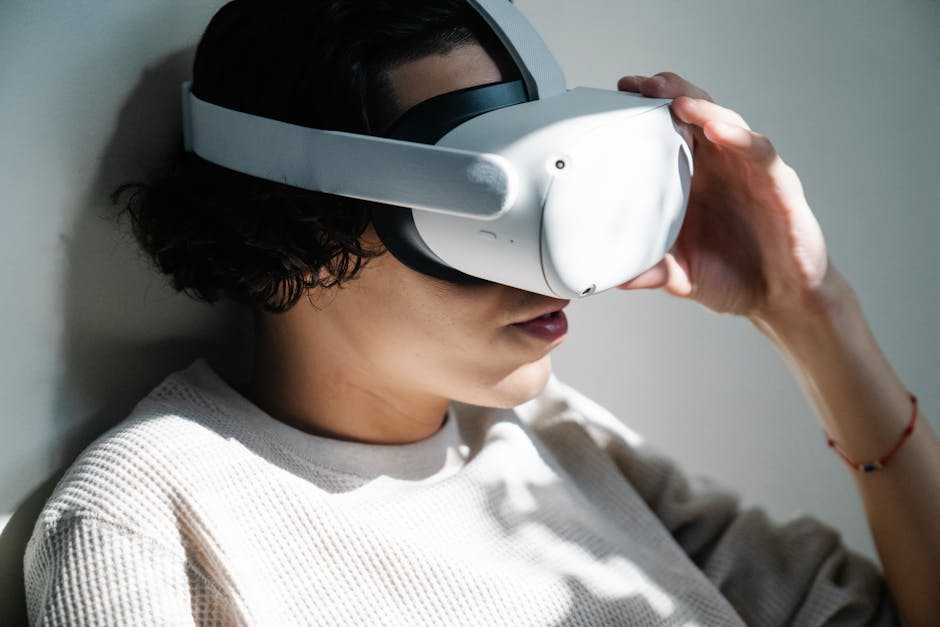Exploring the intersection of technology and mental health, I delve into the cutting-edge world of VR therapy. In recent years, virtual reality has emerged as a promising tool in the field of mental health treatment. From anxiety disorders to PTSD, VR therapy offers immersive experiences that can aid individuals in confronting and managing their mental health challenges.
In this article, I’ll uncover the latest advancements in VR therapy and how it is revolutionizing the traditional approaches to mental health care. With its ability to create realistic simulations and controlled environments, VR therapy is reshaping the way we address psychological issues.
Join me as we navigate through the innovative applications and potential benefits of VR therapy in enhancing mental well-being.
History of VR Therapy in Mental Health
Exploring the history of virtual reality (VR) therapy in mental health reveals a fascinating journey of technological innovation intersecting with psychological well-being. From its inception to the present day, VR therapy has evolved as a promising tool in the treatment of various mental health conditions.
It’s worth noting how VR technology has transitioned from entertainment and gaming applications to a significant player in the mental health treatment landscape. In recent years, the development of VR therapy has accelerated, with researchers and mental health professionals recognizing its potential to revolutionize traditional approaches to therapy.
By providing immersive and interactive experiences, VR therapy enables individuals to confront and address their mental health challenges in a controlled and supportive environment. This history underscores the transformative impact that VR therapy is having on mental health care practices.
Current Applications of VR Therapy
In the realm of mental health, VR therapy has witnessed remarkable progress, revolutionizing traditional treatment approaches. Let’s explore how VR technology is being harnessed to address various mental health conditions.
Treating Anxiety Disorders
VR therapy has shown promise in assisting individuals with anxiety disorders by providing a safe and controlled environment to confront their fears. Exposure therapy in virtual reality allows patients to gradually expose themselves to anxiety triggers, helping them learn coping mechanisms in a simulated yet realistic setting.
Addressing Phobias
Virtual reality offers a novel approach to addressing phobias by creating tailored environments that simulate feared scenarios. Individuals can engage with their fears in a controlled setting, gradually building tolerance and resilience.
This immersive exposure can desensitize individuals to phobic stimuli, aiding in the management and eventual elimination of phobias.
Managing PTSD
For individuals suffering from post-traumatic stress disorder (PTSD), VR therapy serves as a valuable tool in processing traumatic experiences. By recreating triggering situations in a secure virtual space, patients can work through their trauma under the guidance of mental health professionals.
This immersive therapy enables individuals to confront and reprocess their traumatic memories, facilitating healing and recovery.
Advantages of VR Therapy
Exploring the advantages of VR therapy in mental health treatment reveals groundbreaking benefits that are revolutionizing the field. Harnessing the power of virtual reality technology offers a myriad of advantages that traditional therapy methods often lack. Let’s delve into the key advantages of utilizing VR therapy:
- Enhanced Immersion: Immersion in a virtual environment allows for a heightened sense of presence and engagement during therapy sessions. This heightened realism can improve the effectiveness of treatment by making experiences more vivid and memorable.
- Safe Exposure: VR therapy provides a secure platform for individuals to confront their fears in a controlled setting. By simulating anxiety-inducing situations, phobia triggers, or traumatic events, patients can gradually build resilience and coping mechanisms in a safe space.
- Personalized Treatment: Tailored environments and scenarios can be created in VR to suit the specific needs of individual patients. This personalized approach enables therapists to design treatment programs that target each patient’s unique challenges.
- Convenience and Accessibility: VR therapy offers the flexibility of conducting sessions remotely, reducing barriers such as travel time and physical presence. This accessibility expands mental health treatment options to individuals who may have difficulty accessing traditional therapy.
- Engaging and Interactive Experience: The interactive nature of VR therapy makes treatment sessions dynamic and engaging. Patients are actively involved in their therapy, which can enhance motivation and willingness to participate in the treatment process.
- Data-driven Insights: Virtual reality platforms can collect data on patient responses and behaviors during therapy sessions. Analyzing this data provides valuable insights for therapists to track progress, adjust treatment strategies, and optimize the therapeutic process.
The advantages of VR therapy in mental health treatment are paramount in providing innovative solutions that cater to the diverse needs of individuals seeking therapeutic interventions. This transformative technology is reshaping the landscape of mental health care, offering a new frontier in treatment approaches with its immersive and personalized capabilities.
Future Trends in VR Therapy for Mental Health Treatment
Exploring the future trends in VR therapy for mental health treatment is an exciting prospect. As technology continues to advance, the potential for further innovation in this field is immense. In the coming years, we can expect to see significant developments that will continue to enhance the efficacy and accessibility of VR therapy for individuals facing various mental health challenges.
One of the key future trends in VR therapy is the customization of virtual environments to cater to specific mental health issues. By tailoring virtual scenarios to address the unique needs of each individual, therapists can create more effective and targeted treatment plans.
This personalization ensures that users receive therapy that is highly relevant to their specific concerns, ultimately leading to better outcomes. Additionally, advancements in hardware and software technology are expected to further improve the overall VR therapy experience.
From more realistic graphics to enhanced sensory feedback, future developments will focus on increasing immersion levels to create even more realistic and engaging virtual environments. These technological enhancements aim to make the therapy process more engaging and effective for users.
Another emerging trend is the integration of artificial intelligence (AI) algorithms into VR therapy platforms. By leveraging AI, therapists can analyze user data more effectively and gain valuable insights into individual progress and treatment outcomes.
AI algorithms can help personalize therapy sessions, track progress over time, and adapt treatment plans to better suit the evolving needs of users. Moreover, the future of VR therapy may include the use of biofeedback mechanisms to enhance the therapeutic process.
By incorporating physiological data such as heart rate variability or skin conductance into virtual environments, therapists can further tailor treatment interventions based on real-time physiological responses. This biofeedback integration can provide users with immediate feedback on their emotional and physiological states, enhancing self-awareness and promoting emotional regulation.
The future of VR therapy for mental health treatment is filled with exciting possibilities. From personalized virtual environments to advanced technological integration, the upcoming trends promise to revolutionize the way mental health conditions are addressed and treated using VR technology.
As these developments continue to unfold, individuals can look forward to more tailored, effective, and immersive therapeutic experiences that have the potential to transform mental health care for the better.



